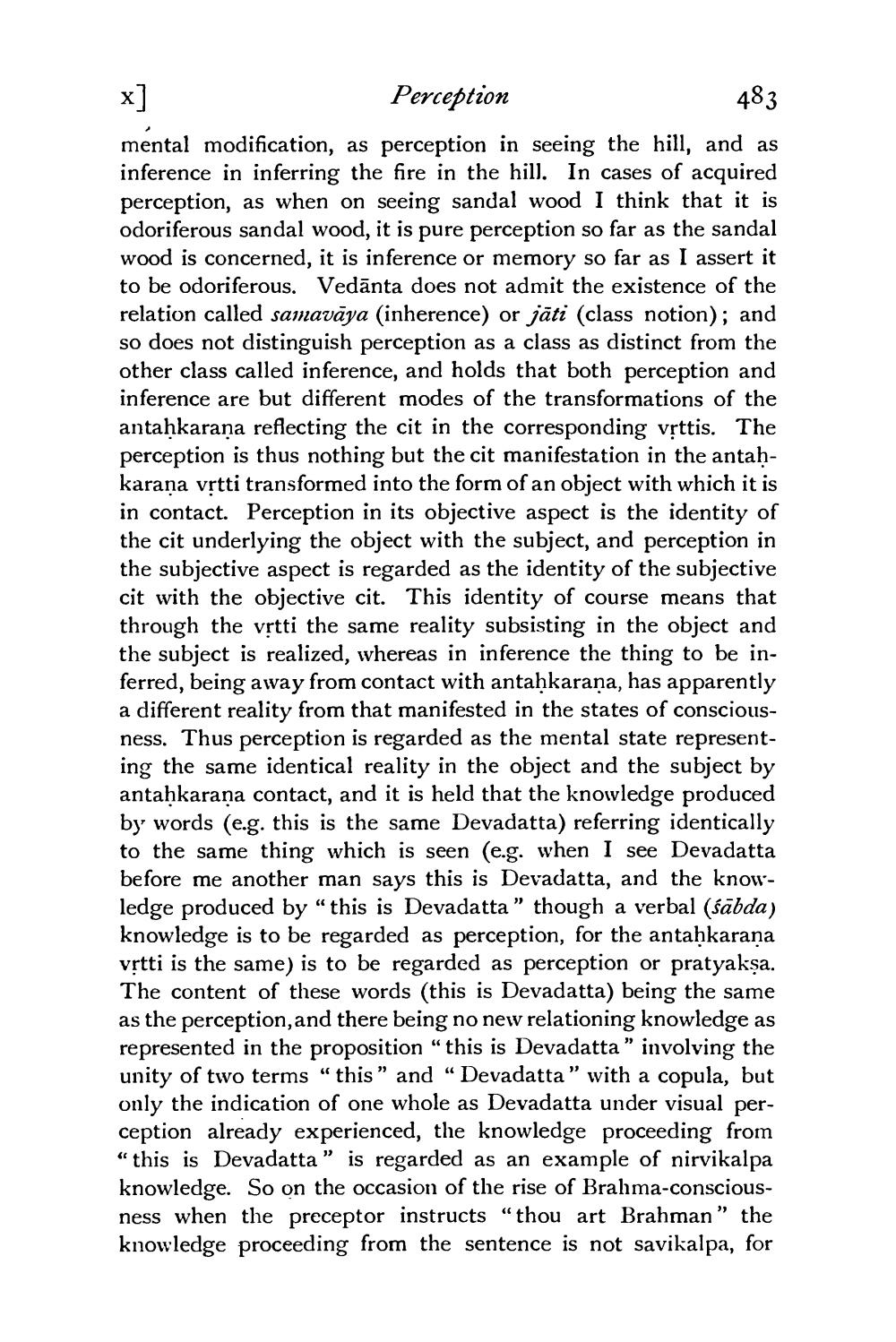________________
Perception
483 mental modification, as perception in seeing the hill, and as inference in inferring the fire in the hill. In cases of acquired perception, as when on seeing sandal wood I think that it is odoriferous sandal wood, it is pure perception so far as the sandal wood is concerned, it is inference or memory so far as I assert it to be odoriferous. Vedānta does not admit the existence of the relation called samavāya (inherence) or jāti (class notion); and so does not distinguish perception as a class as distinct from the other class called inference, and holds that both perception and inference are but different modes of the transformations of the antahkarana reflecting the cit in the corresponding vịttis. The perception is thus nothing but the cit manifestation in the antaḥkaraṇa vrtti transformed into the form of an object with which it is in contact. Perception in its objective aspect is the identity of the cit underlying the object with the subject, and perception in the subjective aspect is regarded as the identity of the subjective cit with the objective cit. This identity of course means that through the vștti the same reality subsisting in the object and the subject is realized, whereas in inference the thing to be inferred, being away from contact with antahkarana, has apparently a different reality from that manifested in the states of consciousness. Thus perception is regarded as the mental state representing the same identical reality in the object and the subject by antahkarana contact, and it is held that the knowledge produced by words (e.g. this is the same Devadatta) referring identically to the same thing which is seen (e.g. when I see Devadatta before me another man says this is Devadatta, and the knowledge produced by "this is Devadatta” though a verbal (śābda) knowledge is to be regarded as perception, for the antahkarana vrtti is the same) is to be regarded as perception or pratyaksa. The content of these words (this is Devadatta) being the same as the perception, and there being no new relationing knowledge as represented in the proposition “this is Devadatta " involving the unity of two terms “this ” and “Devadatta” with a copula, but only the indication of one whole as Devadatta under visual perception already experienced, the knowledge proceeding from "this is Devadatta” is regarded as an example of nirvikalpa knowledge. So on the occasion of the rise of Brahma-consciousness when the preceptor instructs “thou art Brahman” the knowledge proceeding from the sentence is not savikalpa, for




